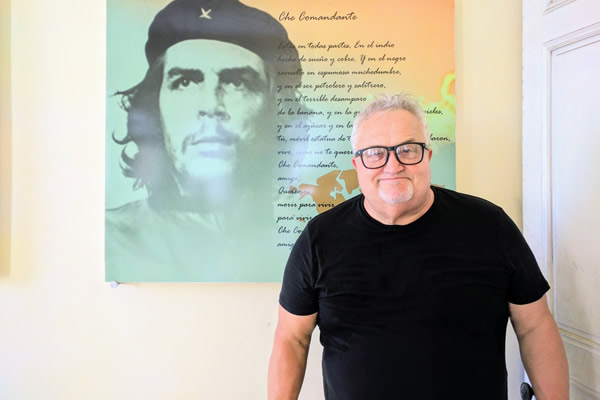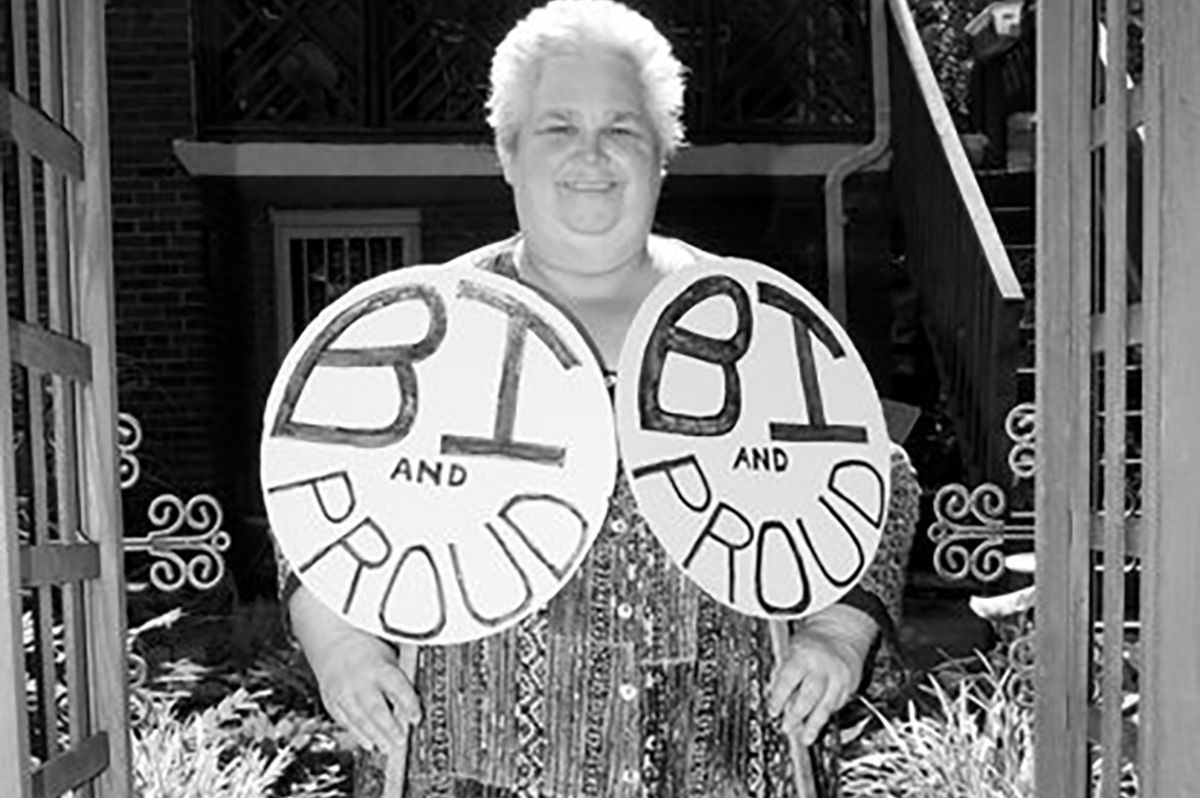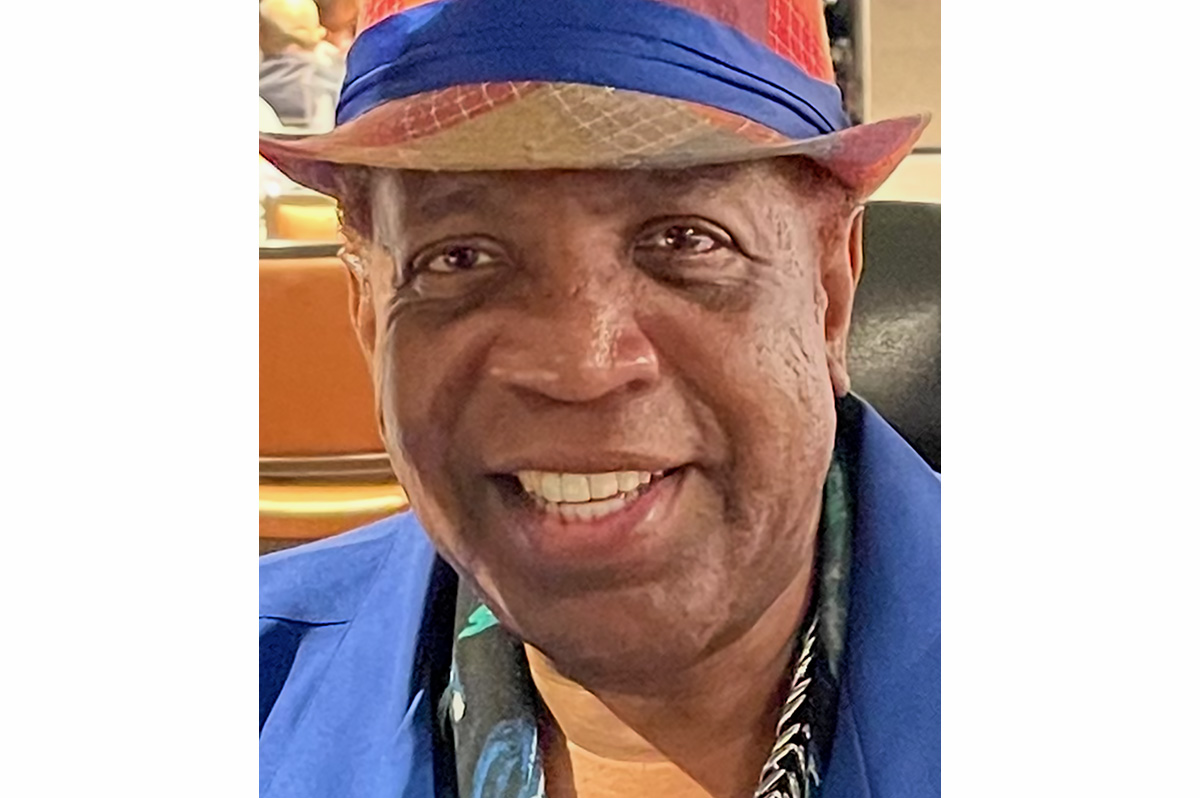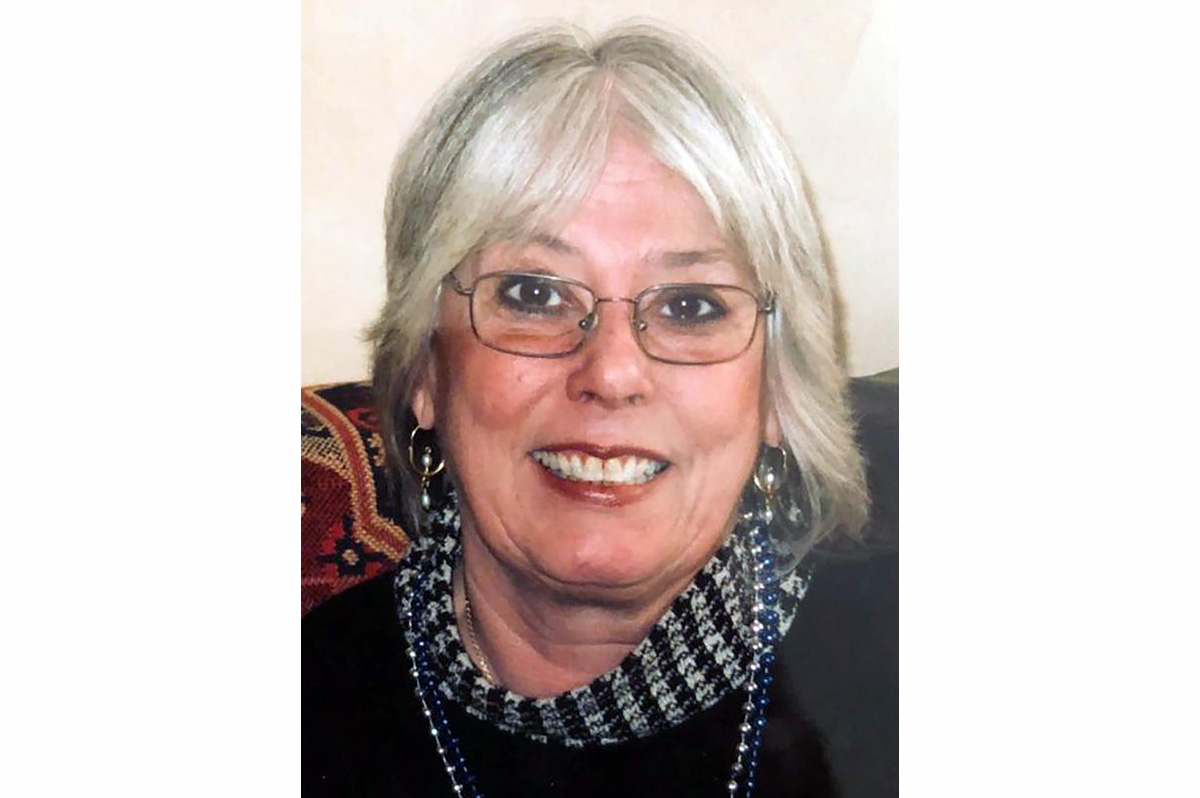Obituary
Scott Robbe dies at 66
Veteran AIDS, queer and progressive activist was born in Wis.

Veteran progressive activist and TV-film-stage producer Scott Robbe died on Sunday, Nov. 21, 2021, according to a statement by Paul Algiers, a longtime friend and the executor of Scott Robbe’s estate. Robbe was in hospice care at the home of his sister, Angela, in Hartford, Wis. He was 66.
Robbe died of complications from Myelodysplastic Anemia, a blood cancer he had battled for more than a year. He had undergone stem-cell treatment at Dana-Farber Cancer Institute in Boston in April of this year.
Robbe was a prominent member in the founding of two direct-action groups in New York City: ACT UP and Queer Nation. Robbe was a member of an ACT UP undercover team, led by activist Peter Staley, that secretly gained access to the New York Stock Exchange in September 1989. Their goal was to protest and publicize the record high price of AZT, then the sole approved treatment for HIV/AIDS. Burroughs Wellcome eventually bowed to this nationally publicized activist pressure and lowered its drug price — then the highest in medical history — by 20 percent.
“Scott was a fearless activist, always on the front lines, whether he was protesting pharmaceutical company greed or homophobia at the Oscars,” said ACT UP New York veteran Ann Northrop. “And he was a total sweetheart.”
“Scott was one of those activists who didn’t flinch when our lawyers would warn us of all the possible charges and maximum sentences we’d face for infiltrating a powerful institution,” said Peter Staley, who chronicled his ACT UP days in the new memoir, “Never Silent”. “When it came to fighting for his dying gay brothers, he’d always reply, ‘I’m in.’”
In 1991, Robbe relocated to the West Coast and co-founded Out in Film, a Los Angeles-based group to battle homophobia in Hollywood filmmaking. At the time, several high-grossing films offered stereotypic and unflattering depictions of gay characters, including Jonathan Demme’s “Silence of the Lambs”, Oliver Stone’s “JFK” and Paul Verhoeven’s “Basic Instinct”.
Out in Film demanded equity for LGBTQ people on both sides of the camera. Robbe and Lesbian Avengers member Judy Sisneros created a pioneering protest at the Oscar Awards in March 1991, during which demonstrators outside the Dorothy Chandler Pavilion called for increased queer visibility and fairness in career opportunities.
The Oscars protest was one highlight of a life devoted to progressive activism. It began in his teen years, when Robbe took part in 1960s marches for the environment, for civil rights and against the Vietnam War. Over the four decades that followed, Robbe’s career encompassed both community organizing and producing dozens of works in theatre, film and television.
Scott Douglas Robbe was born on Feb. 16, 1955, in Decorah, Iowa, to Helen, a homemaker, and James Robbe, a construction supervisor. The family relocated to Hartford, Wis., the following year. Robbe was a graduate of Hartford Union High School in Hartford, and entered the University of Wisconsin, Madison, in 1974, where he majored in theater arts. Located in the state capital, the college was known for its progressive student population, and Robbe took part in numerous protests.
After he graduated in 1978, Robbe moved to New York City, where he met his first boyfriend, a Bennington College student. They lived together in the East Village from 1978 to 1984. At the time, Robbe was helping to renovate the Orpheum Theatre on Second Avenue in the East Village. At the same time he produced at the neighboring Entermedia Theatre his first theatrical production, “False Promises” by the San Francisco Mime Troupe. At the famed La MaMa ETC, Robbe workshopped Harvey Fierstein’s “Fugue in a Nursery,” which forms the middle segment of “Torch Song Trilogy.” That production won wide acclaim both there and after it moved to the Orpheum Theater. Robbe also produced several plays off-Broadway, followed by the Harvey Fierstein play “Safe Sex” on Broadway.
Robbe joined ACT UP New York after seeing the group protest at the White House in October 1987 during the Second National March on Washington for Lesbian and Gay Rights. He joined the group’s Media Committee and took part in numerous protests. He also joined the newly-formed Queer Nation in March of 1990, helping to mount demonstrations across New York City aimed at queer visibility. Robbe was diagnosed as HIV-positive in the early 1990s.
In late 1990, Robbe relocated to Los Angeles to produce TV commercials for Japanese television. His first film job was an associate producer role for 1982’s “In the King of Prussia”, depicting the Berrigan Brothers’ pioneering anti-war efforts and starring Martin Sheen.
Robbe’s extensive television credits include the first-ever LGBTQ comedy special for Comedy Central in 1993, called “Out There,” and hosted by Lea DeLaria. Robbe was on the creative team for the groundbreaking 2003 series “Queer Eye for the Straight Guy.” He also produced shows for Lifetime, Comedy Central, VH1, Children’s Television Workshop and American Playhouse.
In 2005, Robbe was named executive director and film commissioner for Film Wisconsin, Inc. During his tenure, Robbe brought 28 TV and film projects to the state, including the 2009 film “Public Enemies” by Michael Mann, starring Johnny Depp and Channing Tatum. Most recently, Robbe worked with activists in Cuba to bring pressure on the American government to distribute the COVID-19 vaccine in the country. Robbe was also involved in grassroots activism in Puerto Vallarta, Mexico, where he had a second home.
Scott Robbe is survived by his mother, Helen, and his siblings and their spouses, Royce (Donna), John (Ken Hall), Jay (Francine), and Angela. Also surviving him are his uncle Peter Coffeen (Steve Getz), as well as several nieces, nephews and cousins.
There will be no funeral. Arrangements were handled by Milwaukee Cremation Society. A celebration of Robbe’s life will be broadcast online early in 2022. Donations in Scott’s memory may be made to Broadway Cares/Equity Fights AIDS and ACT UP New York.
District of Columbia
Acclaimed bisexual activist, author Loraine Hutchins dies at 77
Lifelong D.C.-area resident was LGBTQ rights advocate, sex educator

Loraine Adele Hutchins, a nationally known and acclaimed advocate for bisexual and LGBTQ rights, co-author and editor of a groundbreaking book on bisexuality, and who taught courses in sexuality, and women’s and LGBTQ studies at a community college in Maryland, died Nov. 19 from complications related to cancer. She was 77.
Hutchins, who told the Washington Blade in a 2023 interview that she self-identified as a bisexual woman, is credited with playing a lead role in advocating for the rights of bisexual people on a local, state, and national level as well as with LGBTQ organizations, many of which bi activists have said were ignoring the needs of the bi community up until recent years.
“Throughout her life, Loraine dedicated herself to working and speaking for those who might not be otherwise heard,” her sister, Rebecca Hutchins, said in a family write-up on Loraine Hutchins’s life and career.
Born in Washington, D.C., and raised in Takoma Park, Md., Rebecca Hutchins said her sister embraced their parents’ involvement in the U.S. civil rights movement.
“She was a child of the ‘60s and proudly recalls attending Martin Luther King’s ‘I Have a Dream’ speech with her mother on the D.C. Mall,” she says in her write-up. “She was steeped in the civil rights movement, was a member of the Student Non-Violent Coordinating Committee, and was proud to say she had an FBI record.”
The write-up says Hutchins received a bachelor’s degree from Shimer College in Mount Carroll, Ill. in 1970, and a Ph.D. in 2001 from Union Institute. It says she was also a graduate of the Institute for the Advanced Study of Human Sexuality’s Sexological Bodyworkers certification training program.
The family write-up says in the 1970s Hutchins became involved with efforts to assist tenants, including immigrant tenants, in affordable housing programs in D.C.’s Adams Morgan neighborhood.
“In 1991, she co-authored the groundbreaking book, ‘Bi Any Other Name: Bisexual People SPEAK OUT’ with friend and colleague Lani Ka’ahumanu,” the write-up says. It notes that the acclaimed book has been republished three times and in 2007 it was published in Taiwan in Mandarin.
According to the write-up, Hutchins delivered the keynote address in June 2006 at the Ninth International Conference on Bisexuality, Gender and Sexual Diversity. In October 2009, D.C.’s Rainbow History Project honored her as one of its Community Pioneers for her activist work.
“Loraine is one of the few people who has explained, defended and championed bisexuality and made sure the “B” got into the LGBT acronym,” the Rainbow History Project says on its website in a 2009 statement. “Sensitivity to bisexual issues, civil rights, and social justice issues is Loraine’s life work,” the statement concludes.
The write-up by her sister says that up until the time of her retirement, Hutchins taught women’s and LGBT studies as well as health issues in sexuality at Montgomery Community College and Towson University in Maryland.
“She was a friend and mentor to many in the LGBTQ community,” it says. “She thoroughly enjoyed adversarial banter on the many topics she held dear: sexuality, freedom of speech, civil rights, needs and support of those with disabilities, especially in the area of mobility, assisted housing, liberal politics and many other causes,” it points out.
She retired to the Friends House community in Sandy Springs, Md., where she continued her activism, the write-up concludes.
Hutchins was among several prominent bisexual activists interviewed by the Washington Blade at the time of her retirement in June 2023 for a story on the status of the bisexual rights movement. She noted that, among other things, in her role as co-founder the organizations BiNet USA and the Alliance of Multicultural Bisexuals, she joined her bi colleagues in prodding national LGBTQ advocacy organizations to improve their advocacy work for bisexuals, which Hutchins said had been inadequate in the past but had been improving in recent years.
Hutchins is survived by her sister, Rebecca Hutchins; her husband, Dave Lohman; nephew, Corey Lohman and his wife Teah Duvall Lohman; and cousins, the family write-up says.
It says a private memorial service was scheduled for December and a public memorial service recognizing her contributions to the LGBTQ community will be held in the spring of 2026.
Obituary
Acclaimed disability rights advocate Thomas Mangrum dies at 61
Lifelong D.C. resident also served as ‘cherished’ Capital Pride volunteer

L. Thomas Magnum Jr., a lifelong D.C. resident, widely recognized and acclaimed advocate for people with disabilities, and LGBTQ rights activist involved in the city’s Capital Pride events, died Sept. 17 from complications related to stomach cancer. He was 61.
A statement released by Project ACTION!, a local disability advocacy organization for which Mangrum served for 15 years as co-president, says he worked for more than 20 years for the D.C.-based Maurice Electric Supply company before retiring in 2002 and devoting his efforts to disability-related projects and programs.
Phylis Holton, an official with the D.C. organization Quality Trust For Individuals With Disabilities and a longtime friend of Mangrum, said as a person with a developmental disability Mangrum devoted his life to supporting others with all forms of disabilities. She said that due to a separate spinal condition, Mangrum used a wheelchair for about 15 years prior to his passing.
Holton said Mangrum had a mild form of developmental disability, which the U.S. Centers for Disease Control and Prevention describes as “a group of conditions due to an impairment in physical, learning, language or behavior areas” that usually develops before a child is born during pregnancy.
Holton said Mangrum was an active member of Project ACTION! for 15 years prior to the 15 years he served as the organization’s co-president.
“He traveled nationally and presented at conferences, was featured on webinars and podcasts on a variety of topics related to self-advocacy, accessibility, equality, and more,” Holton told the Washington Blade in a statement.
“He shared his lived experience of being a Black man with a disability, and being gay, and how it impacted how he was treated in the community,” Holton said. “He was a strong advocate and co-facilitated trainings for independent advocacy organizations that Thomas supported and was a key advocate in their advocacy work,” she said.
Holton added, “He would answer a late request to train a group of attorneys, present at a meeting or testify before City Council or meet with an advocacy group to advance pending legislation that impacted people with disabilities.”
She said Mangrum also enjoyed participating in LGBTQ Pride events and last year traveled to the New York Pride events. According to Holton, he looked forward to participating in WorldPride 2025 events earlier this year in D.C. “but his illness prevented him from doing so.”
In a statement announcing Mangrum’s passing, Capital Pride Alliance, the group that organizes D.C.’s annual LGBTQ Pride events and served as the lead organizer of WorldPride 2025 in D.C., called Mangrum a “cherished volunteer” for D.C. Pride events.
June Crenshaw, the Capital Pride Alliance Deputy Director, said Mangrum served as a volunteer for D.C.’s LGBTQ Pride events “for many years” and was involved in many of the planning activities for WorldPride before his illness prevented him from participating in WorldPride earlier this year.
“He certainly in my interaction with him made me very aware of making sure that Capital Pride was thinking about accessibility always, and making sure that we had a welcoming, affirming accessible space for participants and staff with disabilities,” Crenshaw said.
In its statement on Mangrum’s career and accomplishments in life, Project ACTION! says he helped to advance the needs of people with disabilities through service on many boards and commissions. Among them were Lifeline Partnership, the D.C. Developmental Disabilities Council, the D.C. Center for Independent Living, the Washington Metropolitan Area Transportation Authority’s Accountability Advisory Committee, “and many more.”
“His leadership, passion, and unwavering commitment to equity and inclusion made a lasting impact on all who had the privilege to know and work alongside him,” the statement says.
It adds, “Thomas showed us the power of perseverance, courage, and the importance of standing together. His spirit will continue to guide us and strengthen our community for generations to come.”
A funeral for Mangrum was scheduled for Oct. 9, at D.C.’s Westminster Presbyterian Church at 400 I Street, S.W., with a viewing at 10 a.m. followed by a program at 11 a.m. A burial was scheduled to take place that same day at Heritage Memorial Cemetery at 13472 Poplar Hill Road in Waldorf, Md.
Holton said in lieu of flowers, donations may be made to Project ACTION! for a Celebration of Life and advocacy scholarship in Mangrum’s name. A date and location for the Celebration of Life for Mangrum was to be announced later, according to Project ACTION!
Obituary
Susan Xenarios, crime victim advocate, long-time LGBTQ ally, dies at 79
‘Susan was a force of nature, a mentor’

Susan Xenarios, LCSW, a visionary and dynamic leader of New York’s crime victim movement for 50 years and a courageous ally of the LGBTQ community, died on Sept. 6 in Manhattan. She was 79.
In 1974, an assailant held a knife to Ms. Xenarios’s throat and raped her on a rooftop in Upper Manhattan. At a time when few sexual assault victims spoke out, she began a lifelong, public campaign to improve the care and treatment of survivors and to reform laws and police procedures. Along with her high-profile advocacy, she never stopped counseling individual survivors of crime, pioneering breakthrough therapeutic interventions.
Ms. Xenarios led the creation of New York’s first program to provide assistance to survivors of sexual assault, the state’s first clinical program for male survivors, and the New York Sexual Assault Forensic Examiner (SAFE) Program, which ensures survivor-centered emergency room protocols, including evidence collection. She served as executive director of the Crime Victims Treatment Center in New York City for 40 years (1977 -2017).
Ms. Xenarios also was a driving force behind several state laws to advance the rights of crime survivors, including a 1993 law protecting the confidentiality of rape crisis center communications, the Hate Crimes Act 2000, which included enhanced penalties for hate-motivated crimes, including anti-LGBTQ assaults, and the 2015 “Enough is Enough” law, one of the first laws in the nation to require all colleges to adopt a set of comprehensive procedures for addressing sexual violence on campuses.
“Susan was a force of nature, a mentor, an extraordinary ally to the LGBT community, and a dear friend,” said Bea Hanson, director of the New York State Office of Victim Services, principal deputy director of the federal Office on Violence Against Women during President Barack Obama’s administration (2011-2017), and director of client services of the New York City Gay and Lesbian Anti-Violence Project (1991-1997). “She was a leader in advocating for the rights of sexual assault survivors and all crime victims. She spoke truth to power with a smile on her face and love in her heart. She will be missed.”
“Susan was the greatest champion and friend of LGBT victims of crime there ever was or ever will be,” said Matt Foreman, former executive director of the NYC Gay and Lesbian Anti-Violence Project (1990-1996) and the Empire State Pride Agenda (1996-2003). “She was one of the first to recognize the prevalence of sexual assault against men and she created the first program to help male survivors. When there was enormous pressure to pass a hate crimes law that did not include anti-LGBT offenses, she made sure the larger movement did not abandon us. She understood the harmful effects of having terms like ‘sodomy’ and ‘deviate sexual intercourse’ in New York State law and led the successful drive to purge them from the books. She was so genuinely warm and supportive, I was shocked when I learned that she wasn’t a lesbian.”
A memorial service will be held on Saturday, Sept. 20, at 11 a.m. at West End Collegiate Church, 245 W. 77th St. in Manhattan.
-

 Virginia5 days ago
Virginia5 days agoSpanberger signs bill that paves way for marriage amendment repeal referendum
-

 District of Columbia5 days ago
District of Columbia5 days agoD.C. pays $500,000 to settle lawsuit brought by gay Corrections Dept. employee
-

 Theater4 days ago
Theater4 days ago‘Octet’ explores the depths of digital addiction
-

 Local4 days ago
Local4 days agoComings & Goings














